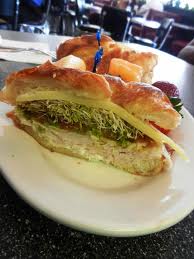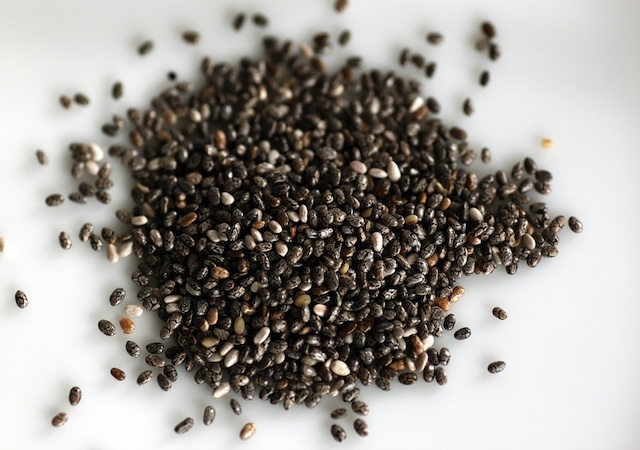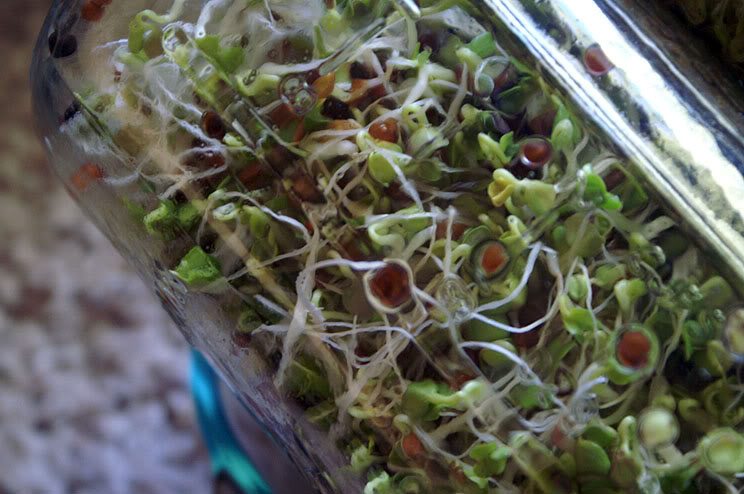EU Member States have endorsed strict hygiene measures for readytoeat sprouted seeds to prevent incidents such as the deadly E. coli O104 outbreak in Germany and France last year.
But will these strict measures be enforced?
Food Quality magazine says the actions include tightening traceability requirements for seeds intended for sprouts and sprout production and approval by Member States of all  sprouts producing plants after hygiene compliance checks by competent authorities.
sprouts producing plants after hygiene compliance checks by competent authorities.
The EC has also called for testing for the absence of pathogenic E. coli in sprouts on the market for each batch of seeds intended for sprouting.
Uh huh.
After the German E. coli O104 outbreak that killed 53 people last year and sickened over 4,000, along with the ridiculous public statements and blatant disregard for public safety taken by sandwich artist Jimmy John’s in the U.S., we reviewed the sprout-related literature and concluded:
• raw sprouts are a well-documented source of foodborne illness;
• risk communication about raw sprouts has been inconsistent; and,
• continued outbreaks question effectiveness of risk management strategies and producer compliance.
We document at least 55 sprout-associated outbreaks occurring worldwide affecting a total of 15,233 people since 1988. A comprehensive table of sprout-related outbreaks can be found at http://bites.ksu.edu/sprouts-associated-outbreaks.
Sprouts present a unique food safety challenge compared to other fresh produce, as the sprouting process provides optimal conditions for the growth and proliferation of pathogenic bacteria. The sprout industry, regulatory agencies, and the academic  community have been collaborating to improve the microbiological safety of raw sprouts, including the implementation of Good Manufacturing Practices (GMP), establishing guidelines for safe sprout production, and chemical disinfection of seed prior to sprouting. However, guidelines and best practices are only as good as their implementation. The consumption of raw sprouts is considered high-risk, especially for young, elderly and immuno-compromised persons.
community have been collaborating to improve the microbiological safety of raw sprouts, including the implementation of Good Manufacturing Practices (GMP), establishing guidelines for safe sprout production, and chemical disinfection of seed prior to sprouting. However, guidelines and best practices are only as good as their implementation. The consumption of raw sprouts is considered high-risk, especially for young, elderly and immuno-compromised persons.
From November 2010 into 2011, an outbreak linked to raw sprouts in the U.S. and involving sandwich franchise Jimmy John’s sickened 140 people. This was the third sprout related outbreak involving this franchise, yet the owner of the Montana Jimmy John’s outlet, Dan Stevens, expressed confidence in his sprouts claiming that because the sprouts were locally grown they would not be contaminated. By the end of December 2010 a sprout supplier, Tiny Greens Farm, was implicated in the outbreak. Jimmy John’s owner, John Liautaud, responded by stating the sandwich chain would replace alfalfa sprouts with clover sprouts since they were allegedly easier to clean. However, a week earlier a separate outbreak had been identified in Washington and Oregon in which eight people were infected with Salmonella after eating sandwiches containing clover sprouts from a Jimmy John’s restaurant. This retailer was apparently not aware of the risks associated with sprouts, or even outbreaks associated with his franchisees.
In late December, 2011, less than one year after making the switch to clover sprouts, Jimmy John’s was linked to another sprout related outbreak, this time it was E.coli O26 in clover sprouts. In February 2012, sandwich franchise Jimmy John’s announced they were permanently removing raw clover sprouts from their menus. As of April 2012, the outbreak had affected 29 people across 11 states. Founder and chief executive, John Liautaud, attempted to appease upset customers through Facebook stating, “a lot of folks dig my sprouts, but I will only serve the best of the best. Sprouts were inconsistent and inconsistency does not equal the best.” He also informed them the franchise was testing snow pea shoots in a Campaign, Illinois store, although there is no mention regarding the “consistency” or safety of this choice.
Despite the frequent need for sprout-based risk communication, messaging with industry and public stakeholders has been limited in effectiveness. In spite of widespread media coverage of sprout-related outbreaks, improved production guidelines, and public health enforcement actions, awareness of risk remains low. Producers, food service and government agencies need to provide consistent, evidence-based messages and, more importantly, actions. Information regarding sprout-related risks and food safety concerns should be available and accurately presented to producers, retailers and consumers in a manner that relies on scientific data and clear communications.
Erdozain, M.S., Allen, K.J., Morley, K.A. and Powell, D.A. 2012. Failures in sprouts-related risk communication. Food Control. 10.1016/j.foodcont.2012.08.022
http://www.sciencedirect.com/science/article/pii/S0956713512004707?v=s5
Abstract
Nutritional and perceived health benefits have contributed to the increasing popularity of raw sprouted seed products. In the past two decades, sprouted seeds have been a  recurring food safety concern, with at least 55 documented foodborne outbreaks affecting more than 15,000 people. A compilation of selected publications was used to yield an analysis of the evolving safety and risk communication related to raw sprouts, including microbiological safety, efforts to improve production practices, and effectiveness of communication prior to, during, and after sprout-related outbreaks. Scientific investigation and media coverage of sprout-related outbreaks has led to improved production guidelines and public health enforcement actions, yet continued outbreaks call into question the effectiveness of risk management strategies and producer compliance. Raw sprouts remain a high-risk product and avoidance or thorough cooking are the only ways that consumers can reduce risk; even thorough cooking messages fail to acknowledge the risk of cross-contamination. Risk communication messages have been inconsistent over time with Canadian and U.S. governments finally aligning their messages in the past five years, telling consumers to avoid sprouts. Yet consumer and industry awareness of risk remains low. To minimize health risks linked to the consumption of sprout products, local and national public health agencies, restaurants, retailers and producers need validated, consistent and repeated risk messaging through a variety of sources.
recurring food safety concern, with at least 55 documented foodborne outbreaks affecting more than 15,000 people. A compilation of selected publications was used to yield an analysis of the evolving safety and risk communication related to raw sprouts, including microbiological safety, efforts to improve production practices, and effectiveness of communication prior to, during, and after sprout-related outbreaks. Scientific investigation and media coverage of sprout-related outbreaks has led to improved production guidelines and public health enforcement actions, yet continued outbreaks call into question the effectiveness of risk management strategies and producer compliance. Raw sprouts remain a high-risk product and avoidance or thorough cooking are the only ways that consumers can reduce risk; even thorough cooking messages fail to acknowledge the risk of cross-contamination. Risk communication messages have been inconsistent over time with Canadian and U.S. governments finally aligning their messages in the past five years, telling consumers to avoid sprouts. Yet consumer and industry awareness of risk remains low. To minimize health risks linked to the consumption of sprout products, local and national public health agencies, restaurants, retailers and producers need validated, consistent and repeated risk messaging through a variety of sources.
 and a professor from the University of British Columbia.
and a professor from the University of British Columbia.




 faithful at a cost of only $500,000.
faithful at a cost of only $500,000..jpeg) since contaminated sprouts were in all likelihood the cause of the numerous infections at the time. Independently of the past EHEC outbreak, the BfR had already earlier drawn attention to the risk of contracting disease resulting from the consumption of raw sprouts.
since contaminated sprouts were in all likelihood the cause of the numerous infections at the time. Independently of the past EHEC outbreak, the BfR had already earlier drawn attention to the risk of contracting disease resulting from the consumption of raw sprouts.  animals, or with runoff from animal production facilities, or by improperly cleaned growing or processing equipment. Seeds also might become contaminated during harvesting, distribution, or storage. Many clover seeds are produced for agricultural use, so they might not be processed, handled, and stored as human food would. Conditions suitable for sprouting the seed also permit bacteria that might be present on seeds to grow and multiply rapidly.
animals, or with runoff from animal production facilities, or by improperly cleaned growing or processing equipment. Seeds also might become contaminated during harvesting, distribution, or storage. Many clover seeds are produced for agricultural use, so they might not be processed, handled, and stored as human food would. Conditions suitable for sprouting the seed also permit bacteria that might be present on seeds to grow and multiply rapidly. Friday I had to grab a quick lunch, so I joined a colleague at the “
Friday I had to grab a quick lunch, so I joined a colleague at the “ Friday I had to grab a quick lunch, so I joined a colleague at the “
Friday I had to grab a quick lunch, so I joined a colleague at the “.jpg) But we can’t find any safety data.
But we can’t find any safety data..jpg)
.jpg) Officials gave no further details of what kind of additives they were and it was not known whether they were toxic or added in excessive amounts. ??All the contaminated bean sprouts have been destroyed and several suspects detained after local authorities acted on a tip-off from a resident.
Officials gave no further details of what kind of additives they were and it was not known whether they were toxic or added in excessive amounts. ??All the contaminated bean sprouts have been destroyed and several suspects detained after local authorities acted on a tip-off from a resident.